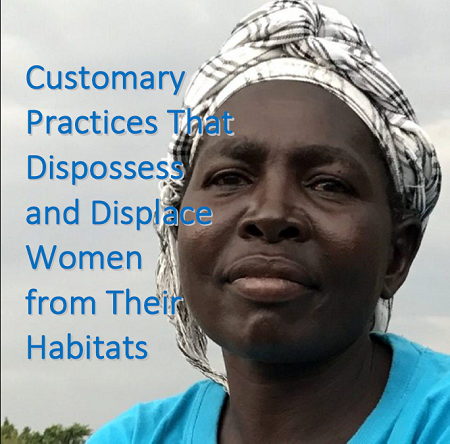Customary Practices That Dispossess and Displace Women from Their Habitats
HIC-HLRN has just released the outcomes of a study of the impacts of customary practices on women’s housing, land and property rights in Kenya.
This study is a product of a collaborative project of Mazingira Institute (MI), Pamoja Trust (PT) and the Housing and Land Rights Network of Habitat International Coalition (HLRN-HIC) within the frame of the project “Valuating the Impacts of Dispossession from Their Homes and Land,” on the nature of impacts on women of evictions due to customary practices in Kenya.
In 2019, this consortium had applied an analytical tool to measure human rights deprivation to a sample of women potentially affected by evictions due to a planned infrastructure-development project, which revealed that most of the women sampled had experienced previous evictions.
A review of the data that revealed this surprising result suggested that women’s previous evictions were due to customary practices related to the widely-held norm that women and girls should not inherit land or housing, only men and boys, whether in parental or marital families. As the previous study, this follow-up survey by Mazingira Institute of 50 purposively selected women in February 2020 analysed their situation in four categories, namely: single, married, separated and widowed women. While this customary-practices survey continued to apply the framework of human rights deprivation in relation to wealth, well-being and habitat, it elicited the women’s personal housing histories to get at the underlying impact of customary practices.
Download Customary Practices That Dispossess and Displace Women from Their Habitats
| Themes |
| • Dispossession • Inheritance rights • Legal frameworks • National • Norms and standards • Property rights • Public policies • Research • Security of tenure • Women |














